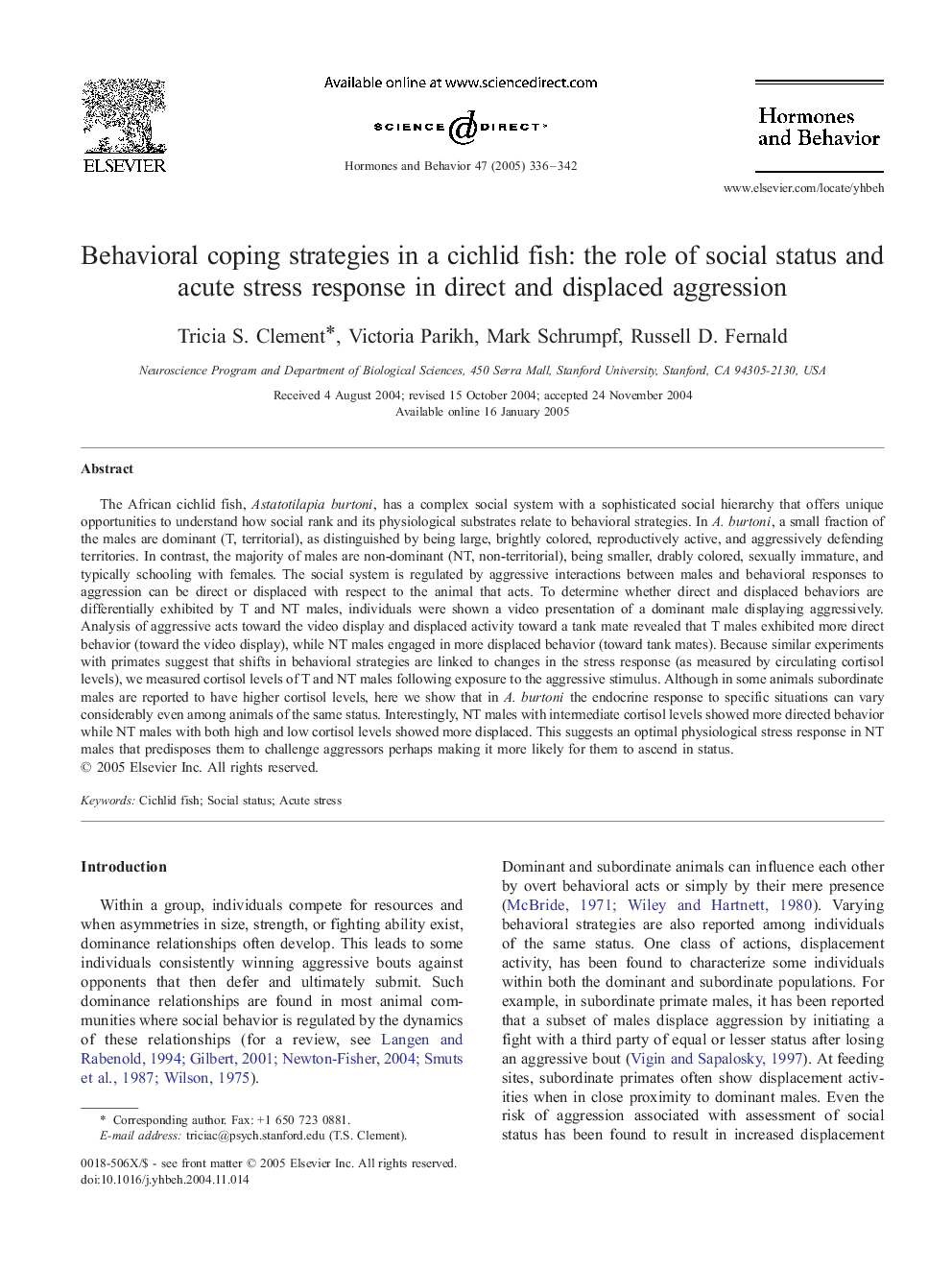| Article ID | Journal | Published Year | Pages | File Type |
|---|---|---|---|---|
| 10301580 | Hormones and Behavior | 2005 | 7 Pages |
Abstract
The African cichlid fish, Astatotilapia burtoni, has a complex social system with a sophisticated social hierarchy that offers unique opportunities to understand how social rank and its physiological substrates relate to behavioral strategies. In A. burtoni, a small fraction of the males are dominant (T, territorial), as distinguished by being large, brightly colored, reproductively active, and aggressively defending territories. In contrast, the majority of males are non-dominant (NT, non-territorial), being smaller, drably colored, sexually immature, and typically schooling with females. The social system is regulated by aggressive interactions between males and behavioral responses to aggression can be direct or displaced with respect to the animal that acts. To determine whether direct and displaced behaviors are differentially exhibited by T and NT males, individuals were shown a video presentation of a dominant male displaying aggressively. Analysis of aggressive acts toward the video display and displaced activity toward a tank mate revealed that T males exhibited more direct behavior (toward the video display), while NT males engaged in more displaced behavior (toward tank mates). Because similar experiments with primates suggest that shifts in behavioral strategies are linked to changes in the stress response (as measured by circulating cortisol levels), we measured cortisol levels of T and NT males following exposure to the aggressive stimulus. Although in some animals subordinate males are reported to have higher cortisol levels, here we show that in A. burtoni the endocrine response to specific situations can vary considerably even among animals of the same status. Interestingly, NT males with intermediate cortisol levels showed more directed behavior while NT males with both high and low cortisol levels showed more displaced. This suggests an optimal physiological stress response in NT males that predisposes them to challenge aggressors perhaps making it more likely for them to ascend in status.
Related Topics
Life Sciences
Biochemistry, Genetics and Molecular Biology
Endocrinology
Authors
Tricia S. Clement, Victoria Parikh, Mark Schrumpf, Russell D. Fernald,
